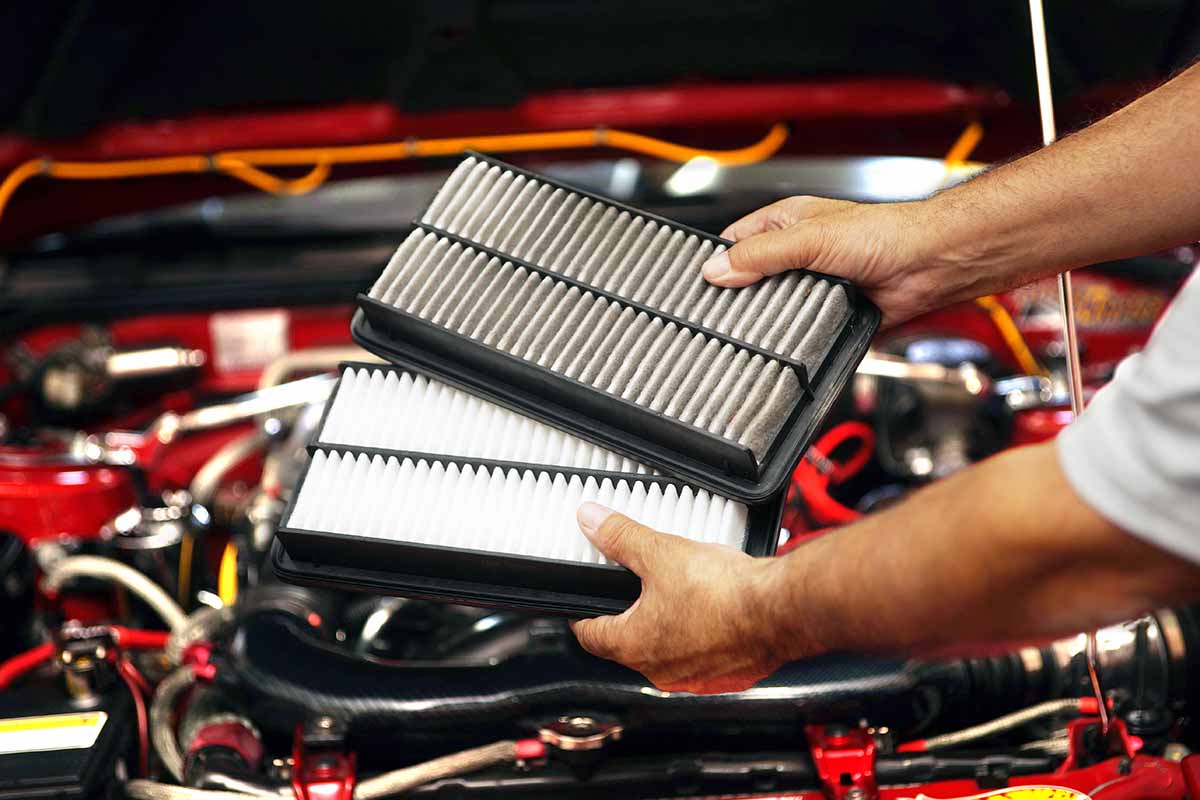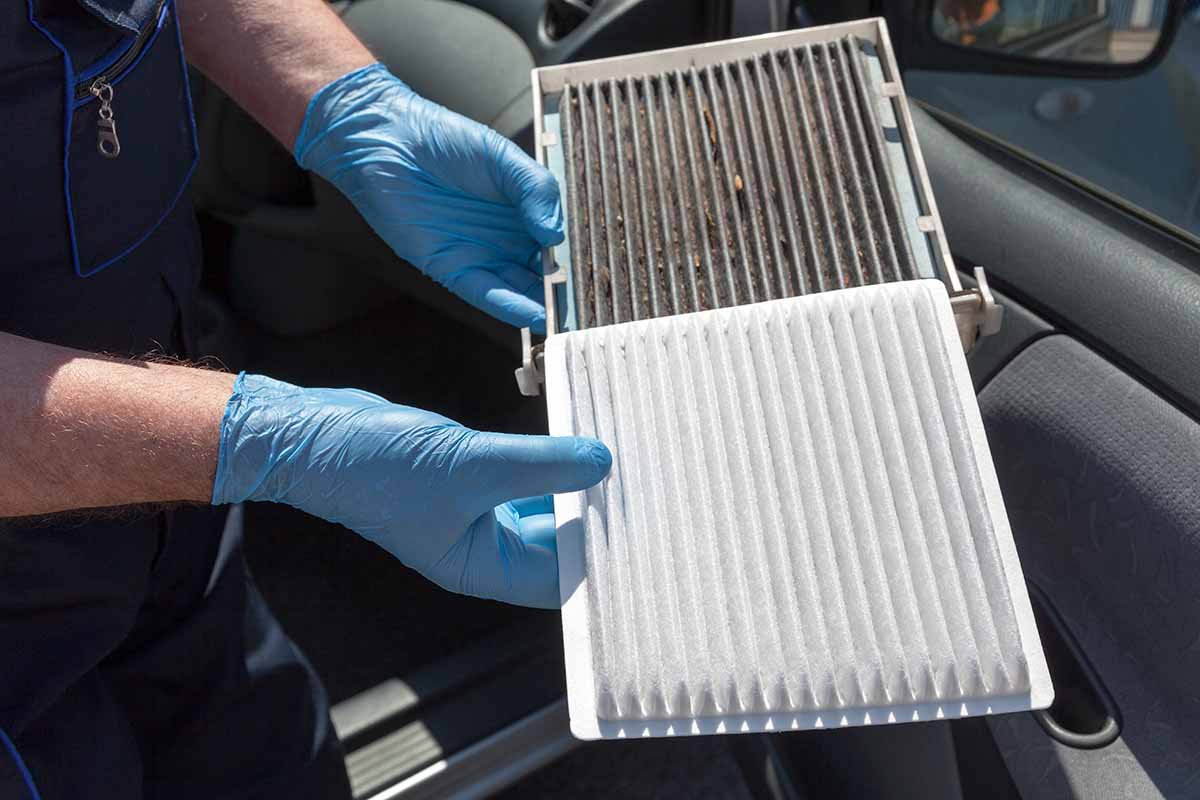Filters, Why Bother?
Did you know that your car has two different types of air filters? The cabin air filter cleans the air that you breathe in, while the engine air filter cleans the air used to power the engine. Both filters are essential for keeping your car running smoothly, and it’s important to make sure they are both clean and working properly.
At Victory Lube, it is our job to inspect both filters and advise of condition so that you can make an informed decision on whether it is time to change.
Changing your filters annually helps you breathe better and can save your fuel and reduce emissions.
Here’s how.
Engine Air Filters

The engine air filter is designed to stop contaminants in their tracks before reaching your engine. How does it work, you may ask?
As the air passes through the filter, environmental impurities like dirt, dust, and grime are removed, allowing only clean air to pass through. Once the clean air passes through the filter, it is mixed with the fuel to power your vehicle.
On older cars pre-1999, you could lose 10% fuel economy; on newer vehicles, the computer makes adjustments, and you could lose power or performance. Replacing a dirty air filter also helps reduce emissions, and that is a great thing!
Cabin Air Filter
First things first: what does a cabin air filter do?
Your cabin air filter is designed to filter out these contaminants to help improve the air that you breathe.
Usually located either behind your glove compartment or under your hood, your cabin air filter plays a major role in ensuring comfort. Whenever you’re running the heat or air conditioning system, your cabin air filter is filtering the air that enters your cabin. This is important because while you’re enjoying the drive, there’s a whole world of dust, mould spores, pollution, and pollen in the air outside, trying to get in.
Changing your cabin air filter regularly cleans the air you breathe and makes any trip more comfortable.
Like its indoor relative – the furnace filter, your vehicle’s filters need to be checked and changed regularly to function at peak performance levels.

